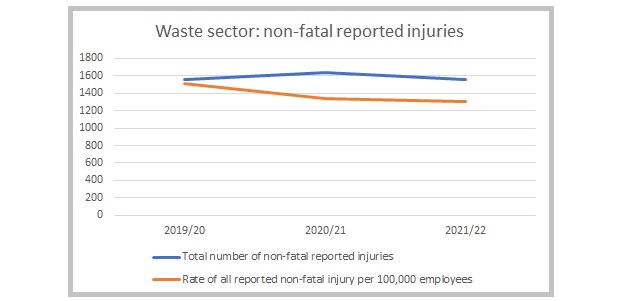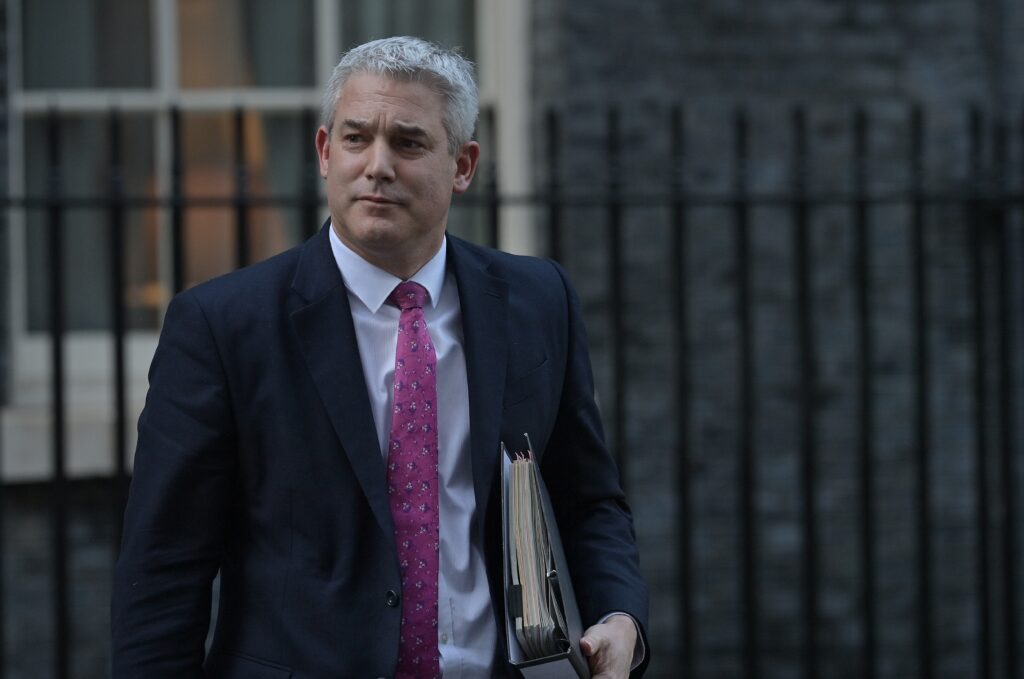While the data is subject to caveats around levels of accuracy because of Covid-19, the numbers appear to show that 2021-22 levels of non-fatal injuries are back to the levels seen two years ago.
In 2019//20 there were 1,556 non-fatal reported injuries in the waste sector, comparable to 1,555 in 2021/22. The year in between – 2020/21 saw 1,641 injuries.

One brighter note is that the waste and recycling sector appears to be improving in relation to overall performance with regard to numbers of workers injured.
The HSE data shows that in 2019/20 there were 1,509 reported non-fatal injuries per 100,000 employees. This number has reduced significantly to 1,302 employees in 2021/22 – it was 1,334 in 2020/21.
The number of fatalities in the sector were reported in July this year (see letsrecycle.com story) and showed that the waste and recycling sector recorded just one fatal injury in 2021/22, the lowest figure for the past six years.
Stress
Today’s overall statistics from the HSE were highlighted by the organisation as showing the impact of stress, depression and anxiety causing work-related illness. However, the waste and recycling sector was not listed as one of the sectors where this was at a high level.
However, a number of waste businesses have been working to help ensure that workers get support in terms of stress and depression.
HSE itself has been warning of a growing crisis in stress and poor mental health related to work. The workplace regulator launched a major campaign last year to remind employers of their responsibilities to their employees’ mental health.
HSE’s chief executive, Sarah Albon, said: “Britain is one of the safest places in the world to work but we need all employers to do more and take seriously their responsibilities to support good mental health at work. That’s why improving mental health in the workplace is a key priority in our 10-year strategy ‘Protecting People and Places’, and why we’re developing new partnerships across industry to help employers support their employees.”
Covid-19
HSE also referenced the Covid-19 pandemic. It said: “This continues to impact on the workplace. Of the 1.8 million suffering a work-related illness, an estimated 585,000 reported it was caused or made worse by the effects of the coronavirus pandemic… In addition, 123,000 workers suffering with COVID-19 believed they were exposed to the virus at work.











Subscribe for free